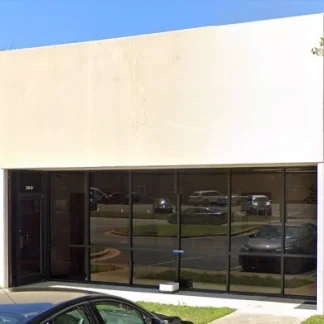UNA - Counseling and Psycotherapy
UNA – Counseling and Psycotherapy is a private rehab located in Greensboro, Nort...
Top Priority Care Services (TPCS) is a substance abuse rehab center in Greensboro, NC providing care to individuals and families. The center offers evidence-based treatment to address both mental health and co-occurring substance abuse disorders, ensuring holistic care.
At Top Priority Care Services, they embrace a holistic and client-centered approach, presenting an array of services to cater to varying needs:
TPCS offers an intensive outpatient program (IOP) that offers a structured yet flexible approach to treatment. The IOP allows participants to maintain their daily commitments while benefitting from intensive therapeutic interventions. This blend of therapy sessions, both individual and group, provides a supportive environment for sustained recovery.
TPCS also provides residential treatment. Here, individuals can benefit from continuous care in a structured setting. This treatment emphasizes creating a therapeutic community where residents actively engage in their healing process, participate in daily activities, and build essential life skills.
Recognizing the power of shared experiences, TPCS harnesses the strength of peer support. Trained individuals, who have themselves experienced the challenges of mental health or substance use disorders, offer guidance, understanding, and support to those currently on their recovery journey.
Transitioning back into the community post-treatment can be a challenging phase for many. To bridge this gap, Top Priority Care Services provides transitional housing options. These safe and structured environments aim to ease individuals back into independent living while offering continued support. Residents learn to navigate daily responsibilities, reintegrate into the community, and maintain their recovery, all while having access to a supportive network.
Promoting social connectivity and community engagement, this service is geared towards supporting individuals to integrate seamlessly into their communities. The aim is to foster a sense of belonging and ensure that clients can lead enriched, connected lives.
Contact us for more information: (336) 294-5611

Connect with Top Priority Care Services by calling their admissions team directly.
(336) 294-5611 Website Get DirectionsCognitive Behavioral Therapy (CBT) is a therapy modality that focuses on the relationship between one's thoughts, feelings, and behaviors. It is used to establish and allow for healthy responses to thoughts and feelings (instead of unhealthy responses, like using drugs or alcohol). CBT has been proven effective for recovering addicts of all kinds, and is used to strengthen a patient's own self-awareness and ability to self-regulate. CBT allows individuals to monitor their own emotional state, become more adept at communicating with others, and manage stress without needing to engage in substance abuse.
Motivational Interviewing (MI) is a clinical approach to helping people with substance abuse issues and other conditions shift behavior in positive ways. It is more goal-oriented than traditional psychotherapy, as MI counselors directly attempt to get clients to consider making behavioral change (rather than wait for them to come to conclusions themselves). Its primary purpose is to resolve ambivalence and help clients become able to make healthy choices freely.
Motivational Interviewing (MI) is a clinical approach to helping people with substance abuse issues and other conditions shift behavior in positive ways. It is more goal-oriented than traditional psychotherapy, as MI counselors directly attempt to get clients to consider making behavioral change (rather than wait for them to come to conclusions themselves). Its primary purpose is to resolve ambivalence and help clients become able to make healthy choices freely.
UNA – Counseling and Psycotherapy is a private rehab located in Greensboro, Nort...
The Moses Cone Health System provides dual-diagnosis addiction treatment in Gree...
Al Counseling is a private rehab located in Greensboro, North Carolina. Al Couns...
Daymark Recovery Services – Guilford Residential is a drug and alcohol rehab loc...